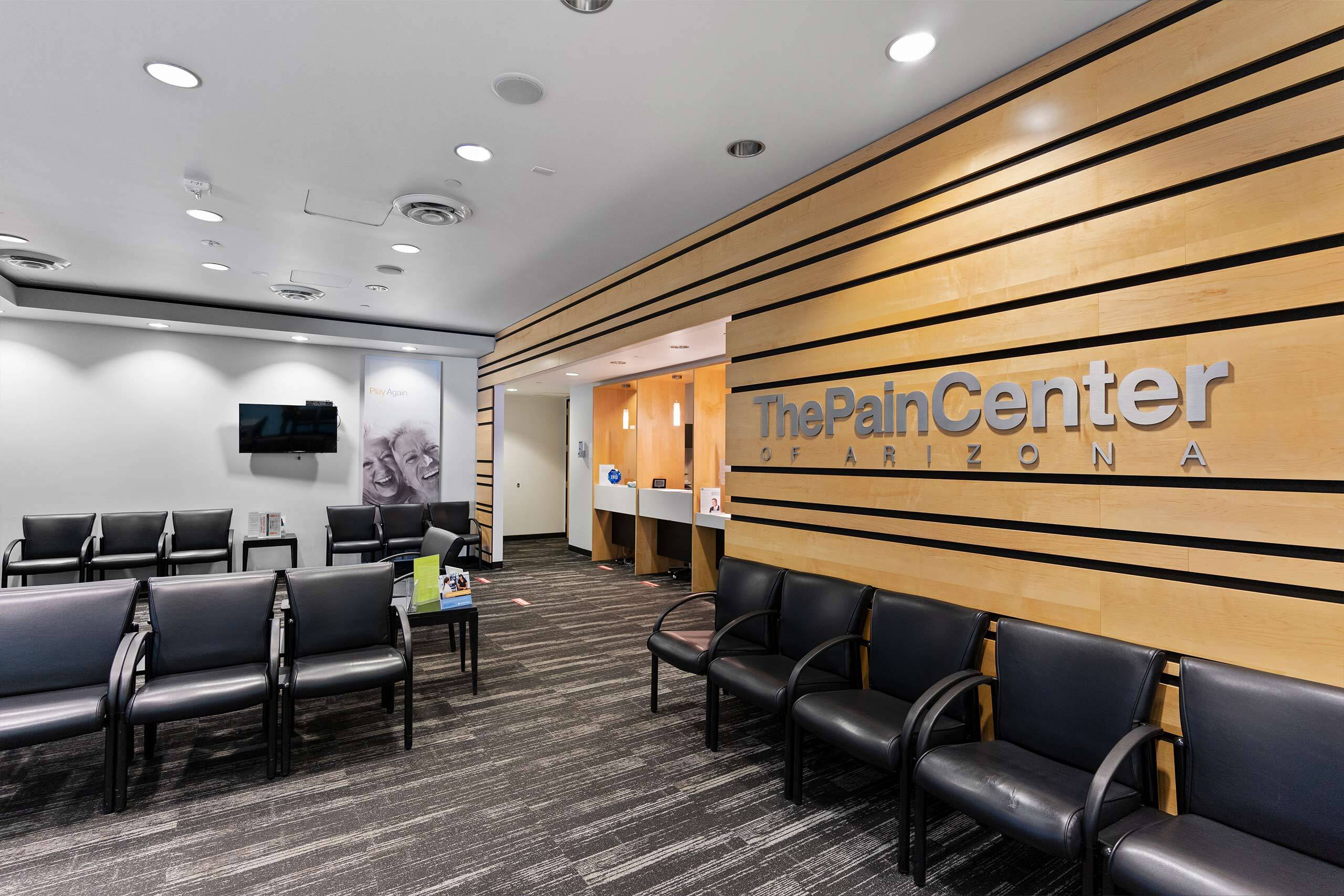Total Body Pain Relief
Are you looking for total body pain relief?
Unlike localized pain conditions, total body pain is felt throughout the body and can cause additional symptoms such as fatigue, stress and depression. Total body pain may be described as mild, moderate or severe, and can be acute, intermittent or long-term (chronic).
Often, body pain can be caused by something as simple as intense exercise or a virus such as the flu. Sometimes, however, full-body pain can be caused by more complex underlying issues.

Causes of Total Body Pain
What causes full body pain, and how can you find pain relief? The answer depends on the underlying condition that creates your pain. Whole body pain can be caused by a number of conditions, such as:
- Intense exercise or overuse (muscle aches)
- Injury
- Arthritis
- Fibromyalgia
- Viral infections such as the flu or other illness
- Poor circulation or cardiac disorders
- Hypothyroidism
- Painful menstruation
- Lupus or other autoimmune conditions
- Lyme disease
- Stress and anxiety
- Depression
- Insomnia
- Inactivity (can contribute to pain or be caused by it)
- Certain vitamin deficiencies such as vitamin D
- Some prescription medication side-effects (e.g. statins )
- Genetic mutations
- Physical or emotional traumas
- Nerve damage
- Opioid induced hyperalgesia
- Other underlying conditions

Total Body Pain Symptoms and Diagnosis
As with all pain issues, be sure to discuss all your symptoms with your doctor. Symptoms associated with some forms of whole-body pain can include:
- Joint aches and pains, or aches all over the body
- Morning stiffness
- Numbness and tingling in the upper or lower limbs
- Muscle pain and widespread muscle aches
- Stiffness and weakness
- Aching with or without fever
- Tenderness and swelling
- Reduced range of motion
- Change in how you walk or move due to pain (limping)
- Muscle cramps or burning
- Rash
- Difficulty sleeping or falling asleep (insomnia)
- Fatigue and inactivity
- Anxiety and depression
- Headaches
- Impaired cognitive function, concentration and memory problems
Be sure to get medical help right away if you have trouble breathing, dizziness, muscle weakness or a stiff neck along with high fever.
Whole body pain can be described as a sharp, dull, aching, stabbing and/or throbbing pain. Some areas may feel more tender than others.
To diagnose the cause of your pain, your doctor will review your past medical history, family history, social history, medications and perform a physical examination. Additionally, imaging can help diagnose the source of your pain include X-rays, MRI scan, CT scan and/or blood tests. It is important that your condition is properly diagnosed so that you can receive the most effective and appropriate treatment.

How to Treat Total Body Pain
Your treatment options depend on the underlying cause and severity of your pain.
How can you ease the discomfort of total body pain? Treatment may start with conservative therapies, such as over-the-counter aspirin, acetaminophen or nonsteroidal anti-inflammatory drugs (e.g. ibuprofen). These nonprescription medications can be effective for certain types of pain when taken according to instructions. You may also consider home care such as using heating or cold packs, relaxation exercises, warm baths or showers, and rest.
The pain management specialists at The Pain Center may also recommend the following interventional pain therapies to reduce total body pain:
- Prescription medications / medication management
- Topical agents (creams)
- Injections such as steroid medications
- Neuromodulation
- Nerve blocks
- Biofeedback
- Physical therapy (can include exercises, losing weight if necessary, heat and cold therapy, electrical nerve stimulation)
- Alternative treatments, including supplements, acupuncture, chiropractic adjustments, massage, meditation and yoga
- Relaxation therapy and breathing techniques
- Cognitive behavioral therapy (psychotherapy)
Some of the interventional medical therapies we provide at The Pain Center include:
Medication Management
Medication management involves the pain specialist prescribing and regulating the medication that you use to help control your pain. The pain management specialist will provide you with the knowledge you need to take your medications properly.
The Pain Center takes a conservative approach with medication management. We try to limit prescription medications to help avoid dependence and unwanted side effects.
Steroid Injections
One option for treating pain is injections of dexamethasone, a steroid that helps reduce pain and inflammation. This can be very effective for arthritis, rheumatoid arthritis, osteoarthritis, and numerous other etiologies of inflammation and pain.
Nerve Blocks
A nerve block is an injection therapy that alleviates pain caused by a nerve(s). Much like other injection procedures, a nerve block requires the use of ultrasound and/or fluoroscopy with contrast dye to correctly locate and inject pain medication. Patients may experience several days, weeks, or months of pain relief from a nerve block procedure.
Neuromodulation
Neuromodulation treatments use low-voltage electrical pulses to block the sensation of pain.

When Further Total Body Pain Treatment is Required
Based on the underlying condition, further treatments may be required. If there is something that can be addressed by another type of specialist, we will refer you to the appropriate specialty doctor.
Commonly Asked Questions about Total Body Pain
What should I do once the cause of my total body pain is diagnosed?
Once the cause of your total body pain is diagnosed, be sure to educate yourself on your condition. Information will be provided to you by your doctor or pain specialist, and information about most conditions is also available online from reputable medical websites. Your pain specialist will help you learn about your condition and the treatment options that are available to you.
I suspect that the prescription medications I am taking may be contributing to my total body pain. What should I do?
Some prescription medications, such as statins for lowering cholesterol, can cause or contribute to body aches. If you suspect that your prescription medications may be contributing to your body pain, make an appointment with your doctor to discuss possible side-effects of the drugs you are taking. He or she can help you determine if your pain may be a side-effect, and whether there are alternative drugs you can try.
What are the best home remedies for total body pain relief?
The most common approaches to relieving total body pain at home include:
- Warm bath with epsom salt
- Hydration
- Heat therapy
- Gentle stretching or yoga
- Massage
- Turmeric tea
- Rest and sleep
- Over-the-counter pain relief
- Deep breathing or meditation
- Ginger compress
How can I relieve total body pain caused by stress or tension?
If your body pain stems from stress or tension, consider the following remedies:
- Progressive Muscle Relaxation (PMR)
- Warm bath or shower
- Deep breathing exercises
- Stretching or yoga
- Massage with aromatherapy
- Hydration while eating light
- Heat therapy
- Mindfulness or meditation
- Limit stimulants (sugar, caffeine, etc.)
- Healthy sleep
When should I see a doctor for total body pain?
Consider contacting your trusted healthcare professional if you are experiencing the following:
- Persistent pain
- Severe or worsening pain
- Fever or chills
- Fatigue or weakness
- Unexplained weight loss
- Swelling or redness
- Sudden onset pain with no obvious cause
- Numbness or tingling
- Recent illness or injury
- Stress or depression
- Underlying conditions (diabetes, arthritis, past injuries, etc.)


Get the care you need within 24 hours*
We know when you’re looking for relief for your chronic pain, you can’t wait any longer than you already have. This is why we can schedule you with an appointment within 24 hours at most of our pain centers across the Valley, so you can start your journey to life-long pain relief as soon as tomorrow.



